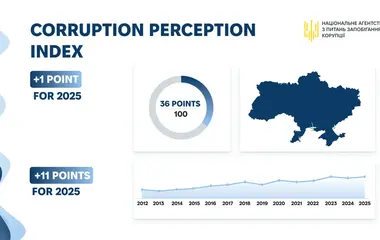In view of the Decision of the Constitutional Court of Ukraine No. 13-r/2020 the National Agency on Corruption Prevention (NACP) is deprived of the right to monitor the implementation of legislative acts on conflicts of interest.
This, in particular, may lead to the fact that the authorities, state and municipal enterprises, institutions and organizations will not resolve situations in which close persons (relatives) work together.
How were such cases addressed earlier?
The Law of Ukraine on Prevention of Corruption states that a conflict of interest of a public servant is to be resolved by a direct manager. The decision to resolve a conflict of interest is made by the supervisor independently or on the basis of a report from an individual that has a conflict of interest.
Individuals that were unable to determine on their own whether there was a conflict of interest in a particular case could contact the NACP for clarification. If the information provided was insufficient, the NACP would begin monitoring the conflict of interest.
Such monitoring could also begin when individual managers did not take any action to resolve a conflict of interest or information about relatives working together was obtained by the NACP from third parties.
Since early 2020, more than 80 such monitoring activities have been conducted, resulting in the resolution of potential conflicts of interest in more than 70 persons. As of October 27, another 70 such activities were in progress.
How did the CCU’s decision change the situation?
Currently, public servants are deprived of the opportunity to receive assistance from the NACP in addressing situations where relatives work together.
In fact, the NACP is currently only empowered to provide clarifications on the presence/absence of a conflict of interest. The NACP can ensure the resolution of a conflict of interest only within the framework of monitoring in accordance with the requirements of Art. 11, part 1, paragraph 6 of the Law of Ukraine on Prevention of Corruption, which are part of the provisions of the Law that were declared unconstitutional by the CCU.
This situation will encourage officials to commit corruption and corruption-related offenses.
 Conflict of interest due to family ties: how the CCU’s Decision facilitates the commission of offenses by officials?
Conflict of interest due to family ties: how the CCU’s Decision facilitates the commission of offenses by officials?
 Conflict of interest due to family ties: how the CCU’s Decision facilitates the commission of offenses by officials?
Conflict of interest due to family ties: how the CCU’s Decision facilitates the commission of offenses by officials?









